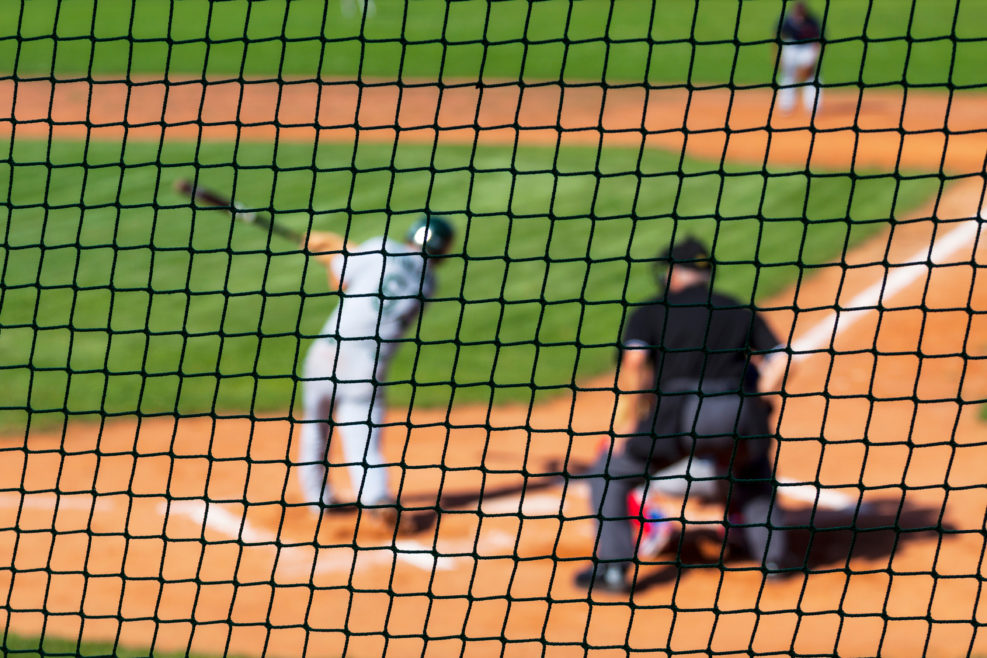
CategoryProbability


A Physicist Tries to Avoid the Fact of Design in Our Universe…
Physicist Alexander Vilenkin of Tufts University argues, against apparent fine-tuning, that our universe’s cosmological constant should have a special value like zero, but doesn’tIn his discussion with Robert Lawrence Kuhn at Closer to Truth, Tufts physicist and cosmologist Alexander Vilenkin addresses the question, “Is the Universe Fine-Tuned for Life and Mind?”: If the deep laws of the universe had been ever so slightly different human beings wouldn’t, and couldn’t, exist. All explanations of this exquisite fine-tuning, obvious and not-so-obvious, have problems or complexities. Natural or supernatural, that is the question. Vilenkin — who is also a professor of evolutionary science — concedes the main point: Alexander Vilenkin: [0:40] Well yeah that’s right. It appears that the Universe is fine-tuned in the sense that there are about 30 constants of nature which take some specific value: if you look at these numbers, they look Read More ›

The Search for ET Should Quit Claiming Earth Is Not Special
How will we assess the raw probability of being alone in this universe when we have no other universe to compare with ours?
A Modest Proposal for the MLB
Major League Baseball got greedy and needs to reform.
The MLB Coin-Flipping Contest
What are the chances that wild-card teams will make it to the World Series and win?
Does the Evidence for Our Universe’s Fine-Tuning Mean Anything?
Why is a divine Mind not “scientific” if the evidence points in that direction?
Did “Evolution” Wire Human Brains to “Act Like Supercomputers”?
In making such a claim, psychology researchers may have got more than they bargained for
Sabrina Ionescu’s Hot Hand
When basketball players hit a "streak," does that elevate the probability of success?
This Time, Houston Was Blessed More by Luck Than by Stolen Signs
The victory parade over, let’s look at whether luck had more to do with the Astros’ success than Astro fans want to admitThe Houston Astros are the 2022 Major League Baseball (MLB) World Champion — this time, as far as we know, without relying on electronically stolen pitching signs sent to batters by banging trashcan lids or using buzzers hidden under uniforms. Now that the champagne has popped and the victory parade has been held, let’s consider the fact that maybe, just maybe, luck had more to do with the Astros’ success than Astro fans want to admit. Athletes and fans want to believe that the team that wins the World Series, Super Bowl, or any other championship is the best team that year. The reality is that in every sport — some more than others — outcomes are influenced by good Read More ›

Step Away From Stepwise Regression (and Other Data Mining)
Stepwise regression, which is making a comeback, is just another form of HARKing — Hypothesizing After the Results are KnownThere is a strong correlation between the number of lawyers in Nevada and the number of people who died after tripping over their own two feet. There are similarly impressive correlations between U.S. crude oil imports and the per capita consumption of chicken — and the number of letters in the winning word in the Scripps National Spelling Bee and the number if people killed by venomous spiders. If you find these amusing (as I do), there are many more at the website Spurious Correlations. These silly statistical relationships are intended to demonstrate that correlation is not causation. But no matter how often or how loudly statisticians shout that warning, many people do not hear it. When there is a Read More ›

We Love Baseball Because of — Not Despite — Lady Luck
With a big game approaching, emotions run high so let’s heed some statistical realitiesAs we approach the MLB All-Star Game in Los Angeles on July 19, we can be confident of one thing — most current league leaders will not do as well after the break as they did before it. Baseball broadcaster and National Sportswriter of the Year Peter Gammons was among the first to notice this. He wrote in 1989 that, of those baseball players who hit more than 20 home runs before the All-Star break, 90 percent pegged fewer than 20 after the break. Gammons concluded that there was a “second-half power outage,” perhaps because the sluggers got nervous about the possibility of breaking a home run record. More recently, sports forecaster Max Kaplan made a similar observation, which he Read More ›

The Holy Rollers: Christians Who Gamble for God
Not only have many successful players been Christians, probability theory was developed in part by a philosopher who became a devout ChristianThis last instalment of the writeup of the podcasts with mathematician, computer scientist, engineer — and part-time gambler — Salvador Cordova looks at why and how Christians like himself gamble without cheating. Cordova was one of the crowdfunders of a film on the topic called Holy Rollers (2011). The host is fellow engineer and Walter Bradley Center director Robert J. Marks in “Card Counting Strategies and Dangers” (podcast, June 23, 2022): https://mindmatters.ai/wp-content/uploads/sites/2/2022/06/Mind-Matters-News-Episode-192-Sal-Cordova-Episode-4-rev1.mp3 This portion begins at 15:47 min. A partial transcript and notes, Show Notes, and Additional Resources follow. Robert J. Marks: First of all, tell us what the movie was about, and then your involvement. Sal Cordova: It’s about one of the most successful card counting teams, blackjack teams. Read More ›

Can AI Really Predict Crime a Week in Advance? That’s the Claim.
University of Chicago data scientists claim 90% accuracy for their algorithm using past data — but it’s hard to evaluateThe University of Chicago recently announced to great fanfare that, Data and social scientists from the University of Chicago have developed a new algorithm that forecasts crime by learning patterns in time and geographic locations from public data on violent and property crimes. The model can predict future crimes one week in advance with about 90% accuracy. University of Chicago Medical Center, “Algorithm Predicts Crime a Week in Advance, but Reveals Bias in Police Response” at Newswise (June 28, 2022) Many thought immediately of the 2002 movie Minority Report, in which three psychics (“precogs”) visualize murders before they occur, thereby allowing special PreCrime police to arrest would-be assailants before they can commit them. Have these University of Chicago researchers made Read More ›

Gambling: When advantage players team up, dealer beware!
On the other hand, the movie industry has made a good thing from films of the legendary exploitsGambling has got to be a slam dunk exciting premise for films. Once again, mathematician, computer scientist, engineer — and part-time gambler — Salvador Cordova joins fellow engineer and Walter Bradley Center director Robert J. Marks to talk about gambling and probability — how hard math types (advantage players) like himself have beaten the odds without cheating. And, this time, they discuss how their skills while working together can wind up as a movie. From Robert J. Marks in Card Counting Strategies and Dangers (podcast): https://mindmatters.ai/wp-content/uploads/sites/2/2022/06/Mind-Matters-News-Episode-192-Sal-Cordova-Episode-4-rev1.mp3 This portion begins at 00:23 min. A partial transcript and notes, Show Notes, and Additional Resources follow. Robert J. Marks: Have you ever taken advantage of your skills embedding with other people? … Sal Read More ›

Probability: Now for the Basic Arithmetic of Card Counting…
The advantage player who dresses like a bum (or worse) has it all worked out, in part with the help of a computer at homeIn “Can a good hustler count cards like a computer?” (podcast), Walter Bradley Center director Robert J. Marks continues his discussion of card counting techniques with gambling ace Salvador Cordova, also a mathematician and engineer. An “advantage player,” Cordova made his living, in part, by beating the casinos from about 2005 through 2014. Note: This podcast involves a fair amount of discussion of specific numbers so the partial transcript below may be especially useful: https://mindmatters.ai/wp-content/uploads/sites/2/2022/06/Mind-Matters-Episode-191-Sal-Cordova-Episode-3-rev1.mp3 This portion begins at approximately 12:00 min. A partial transcript and notes, Show Notes, and Additional Resources follow. Robert J. Marks: That’s the card counting system you use, Omega II? Sal Cordova: Right. If you see an ace or an eight, you just add zero Read More ›

Can You Really Be a Card Counter Without Resorting to Magic?
Math nerd (and successful gambler) Salvador Cordova explains how card counters improve their odds in blackjackWalter Bradley Center director Robert J. Marks is back withSalvador Cordova, mathematician, engineer — and gambling ace. In previous episodes, they discussed why most players lose and how “advantage players” — those who understand the game, the players, the management, and the mathematical probabilities — sometimes clean out casinos. Of course, they also sometimes get kicked out, as has happened to Cordova, and new rules and precautions ensue. And, doubtless, new ways are found around them. In this new podcast episode, “Can a good hustler count cards like a computer?”, Cordova says a bit more about how the pros improve their odds from pure chance by card counting. He made his living, inpart, that way from about 2005 through 2014. Read More ›

Can Casinos Ban Customers Who Might Get TOO “Lucky”?
Sal Cordova was good enough at card counting that his photo was circulated and casino nabbed his driver’s licence…In a recent podcast, “When the house can’t win the game, it will change the rules” (June 9, 2022), Walter Bradley Center director Robert J. Marks continued his discussion with mathematician, computer scientist, and engineer Salvador Cordova on the mathematics of gambling — who wins, who loses, and why. Last week, we looked at the struggle between the casino and the “advantage player” who knows very well how the system works and spots its weaknesses. But now, what about banning a suspiciously “lucky” would-be customer outright? Here’s what happened to Sal Cordova: https://mindmatters.ai/wp-content/uploads/sites/2/2022/06/Mind-Matters-News-Episode-190-Sal-Cordova-Episode-2-rev1.mp3 This portion begins at roughly 11:10 min. A partial transcript and notes, Show Notes, and Additional Resources follow. Sal Cordova: One of the better things is that Read More ›

The Struggle Between Casinos and Advantage Players
The scene is enlivened by assorted other characters who use romance to help in the struggle for a big win. Sal Cordova explainsIn a recent podcast, “When the house can’t win the game, it will change the rules” (June 9, 2022), Walter Bradley Center director Robert J. Marks continued his discussion with mathematician, computer scientist, and engineer Salvador Cordova on the mathematics of gambling — why the odds are stacked against the gambler — or, depending on a gambler’s skill and knowledge of the circumstances, maybe they aren’t… https://mindmatters.ai/wp-content/uploads/sites/2/2022/06/Mind-Matters-News-Episode-190-Sal-Cordova-Episode-2-rev1.mp3 This portion begins at approximately 00:31 min. A partial transcript and notes, Show Notes, and Additional Resources follow below. Marks and Cordova ended Episode 1 by discussing the famous advantage player Don Johnson who cleaned out Atlantic City for tens of millions of dollars in 2011. What was his secret? Sal Cordova: He Read More ›

The Salem Hypothesis: Why Engineers View the Universe as Designed
Not because we're terrorists or black-and-white thinkers, as claimed. A simple computer program shows the limits of creating information by chanceIn the fun-filled world of internet debate between creationists and evolutionists, we encounter the Salem Hypothesis: Creationists tend to be engineers. Many explanations have been offered for this phenomenon (apparently named after Talk Origins contributor Bruce Salem): engineers are closet terrorists creationists are trying to protect their fragile beliefs a desire to exert authority engineers like simple black and white answers There’s a reason internet forums are not known for flattering character analysis! Anyhow, the true reason for the Salem Hypothesis is summed up in this graph. Read on to find out why. Engineers are more likely to be creationists because they are familiar with what it takes to design complex things for specific tasks. Which is exactly what we Read More ›